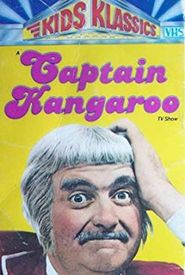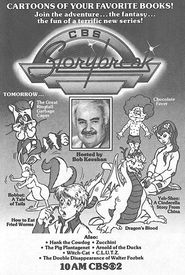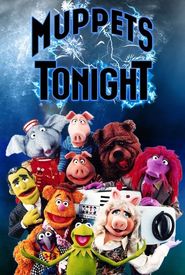Robert James Keeshan, a television producer and host, was born in Lynbrook, Long Island, New York. As a young man, he served in the US Marine Corps Reserve.
Starting his career as a page at the National Broadcasting Company, Keeshan later began his on-air career as the original "Clarabell, the Clown" for the NBC The Howdy Doody Show in 1947.
He then became the first host/performer of WJZ/WABC TV Ch. 7 NYC's "Time For Fun" / "The Johnny Jellybean Show", where he emceed the show as "Corny The Clown" weekdays at noon from September 21st, 1953, to July 29th, 1955.
Keeshan co-created, co-produced, and hosted "Tinker's Workshop" with Jack Miller on WJZ/WABC TV Ch. 7 in New York City weekday mornings from November 15, 1954, to September 9, 1955.
The show continued without Robert until August 22, 1958, with later hosts being Henry Burbig, Gene London, and Dom DeLuise.
When asked to create a show for children, Keeshan jumped at the chance. On October 3rd, 1955, Captain Kangaroo began its near 30-year run on CBS, and later on Public Broadcasting Service (PBS) in the 1980s.
Captain Kangaroo was known for its fun segments, such as Bunny Rabbit swindling carrots before lunch from The Captain or Mister Moose finding ways to get the Captain to stand still long enough to drop ping-pong balls on his head.
Dennis (Cosmo Allegretti) would often ask so many questions that Mister Bainter would almost always lose his cool. The show taught values and provided a gentle and caring male role model for children with busy or absent fathers.
Keeshan also encouraged a love of reading and featured animals, such as those shown by Mister Green Jeans (Hugh Brannum),allowing children to experience them through his fascination with them.
In addition to Captain Kangaroo, Keeshan took on a Saturday morning persona as "Mister Mayor" for a year in 1964.
The show won six Emmy's and three Peabody Awards, totaling nine awards, and Keeshan was elected to the Clown Hall of Fame.
Keeshan published "Growing Up Happy" in 1989 and "Good Morning Captain: 50 Wonderful Years with Bob Keeshan, TV's Captain Kangaroo" in October 1996.
He also wrote the "Itty Bitty Kitty" children's book series. Widowed in the 1990s, Keeshan passed away in Vermont in 2004.



















